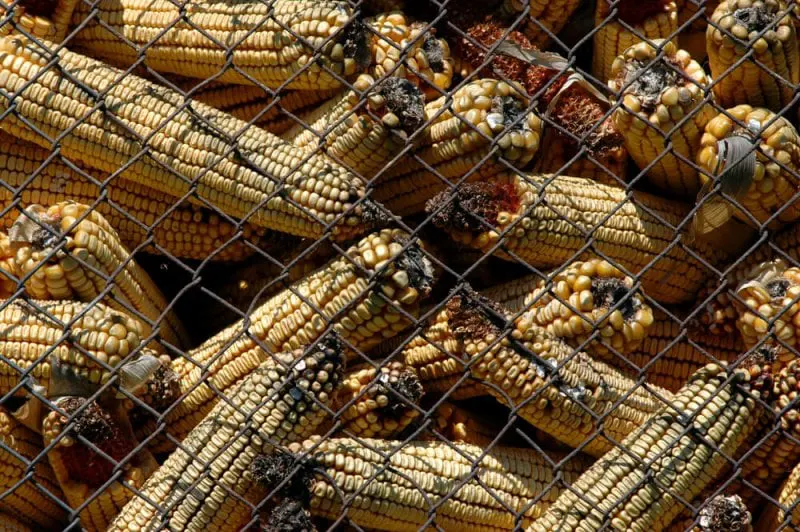Viewpoint: Food safety could be jeopardized in the EU if fungicides that kill cancer-causing toxins are banned
Viewpoint: Food safety could be jeopardized in the EU if fungicides that kill cancer-causing toxins are banned


There are many countries that some Europeans will never visit, yet they eat food from these places every day. –For example, some readers will never set foot in the beautiful city of Istanbul, but if they eat figs, nuts, or olives, the chances are very high that they were imported from Turkey.
When Europeans buy these products, they expect them to be safe for consumption. However, a European Commission document from May this year suggests otherwise. Checks on food imports found that five percent of hazelnuts showed ochratoxin contamination, while 10 percent of dried grapes, 20 percent of dried figs, as well as 50 percent of pistachios from Turkey showed aflatoxin contamination.
Ochratoxin and aflatoxins are both subgroups of mycotoxins, which are toxic chemicals naturally produced by fungi, or mould, that are estimated to contaminate some 25 percent of the world’s crops. Damp climates, insect damage, and poor food storage facilitate the growth of mold and hence increase the likelihood and levels of mycotoxin contamination.
Aflatoxins are one of the highly toxic metabolites produced by fungal species, and are responsible for 28 percent of all liver cancers in the world. In Africa, aflatoxins affect more people than tuberculosis and malaria, representing 40 percent of all liver cancers. Turkey is just one example of where these food imports originate.
The aforementioned European Commission document included a long list of countries that the EU imports from, all with different levels of mycotoxin contamination. There are common precautions to fighting mould and limiting their respective health risks.
…
Farmers fight mycotoxins with fungicides, which are chemical compounds or organic organisms used to kill parasitic fungi or their spores. However, the chemicals used to combat mold are coming under fire, due to the EU’s hazard-based approval process.
…
While the words “hazard” and “risk” are used interchangeably in the everyday use of the English language, they mean different things in science. In this reading, “hazard” is the potential for harm, “risk” is the likelihood of harm occurring.
For instance, going to the beach is a hazard because the sun can potentially cause harm; with sun cream managing this hazard by reducing unprotected exposure, thus making it not a risk. In scientific language, the sun is a hazard, but spending time at the beach with sun cream is not a risk.
The current approval process does not take this into account, thus banning many chemical compounds for their theoretical potential of causing harm. Under the current timeline, 58 pesticides are up for reapproval, with 25 of them being fungicides, which are used against mould. Many of them are unlikely to be re-approved, thereby depriving farmers of tools to fight mycotoxins.
This would affect 60 percent of all agricultural imports in the EU (by 2016 standards), which could lead to even higher exposure of common foods to health-threatening toxins. The approval process of the European Union needs to conduct both risk and impact assessments.
Read the original post

 | Videos | More... |

Video: Nuclear energy will destroy us? Global warming is an existential threat? Chemicals are massacring bees? Donate to the Green Industrial Complex!
 | Bees & Pollinators | More... |

GLP podcast: Science journalism is a mess. Here’s how to fix it

Mosquito massacre: Can we safely tackle malaria with a CRISPR gene drive?

Are we facing an ‘Insect Apocalypse’ caused by ‘intensive, industrial’ farming and agricultural chemicals? The media say yes; Science says ‘no’
 | Infographics | More... |

Infographic: Global regulatory and health research agencies on whether glyphosate causes cancer
 | GMO FAQs | More... |

Why is there controversy over GMO foods but not GMO drugs?

How are GMOs labeled around the world?

How does genetic engineering differ from conventional breeding?
 | GLP Profiles | More... |

Alex Jones: Right-wing conspiracy theorist stokes fear of GMOs, pesticides to sell ‘health supplements’




 California, Washington, Oregon forge immunization alliance to safeguard vaccine access against federal undermining
California, Washington, Oregon forge immunization alliance to safeguard vaccine access against federal undermining Trust issues: What happens when therapists use ChatGPT?
Trust issues: What happens when therapists use ChatGPT? Fighting deforestation with CO2: Biotechnology breakthrough creates sustainable palm oil alternative for cosmetics
Fighting deforestation with CO2: Biotechnology breakthrough creates sustainable palm oil alternative for cosmetics Viewpoint — Fact checking MAHA mythmakers: How wellness influencers and RFK, Jr. undermine American science and health
Viewpoint — Fact checking MAHA mythmakers: How wellness influencers and RFK, Jr. undermine American science and health 30-year-old tomato line shows genetic resistance to devastating virus
30-year-old tomato line shows genetic resistance to devastating virus Viewpoint: Video — Big Solar is gobbling up productive agricultural land and hurting farmers yet providing little energy or sustainabilty gains
Viewpoint: Video — Big Solar is gobbling up productive agricultural land and hurting farmers yet providing little energy or sustainabilty gains The free-range chicken dilemma: Better for birds, but with substantial costs
The free-range chicken dilemma: Better for birds, but with substantial costs ‘You have to treat the brain first’:Rethinking chronic pain with Sanjay Gupta
‘You have to treat the brain first’:Rethinking chronic pain with Sanjay Gupta
